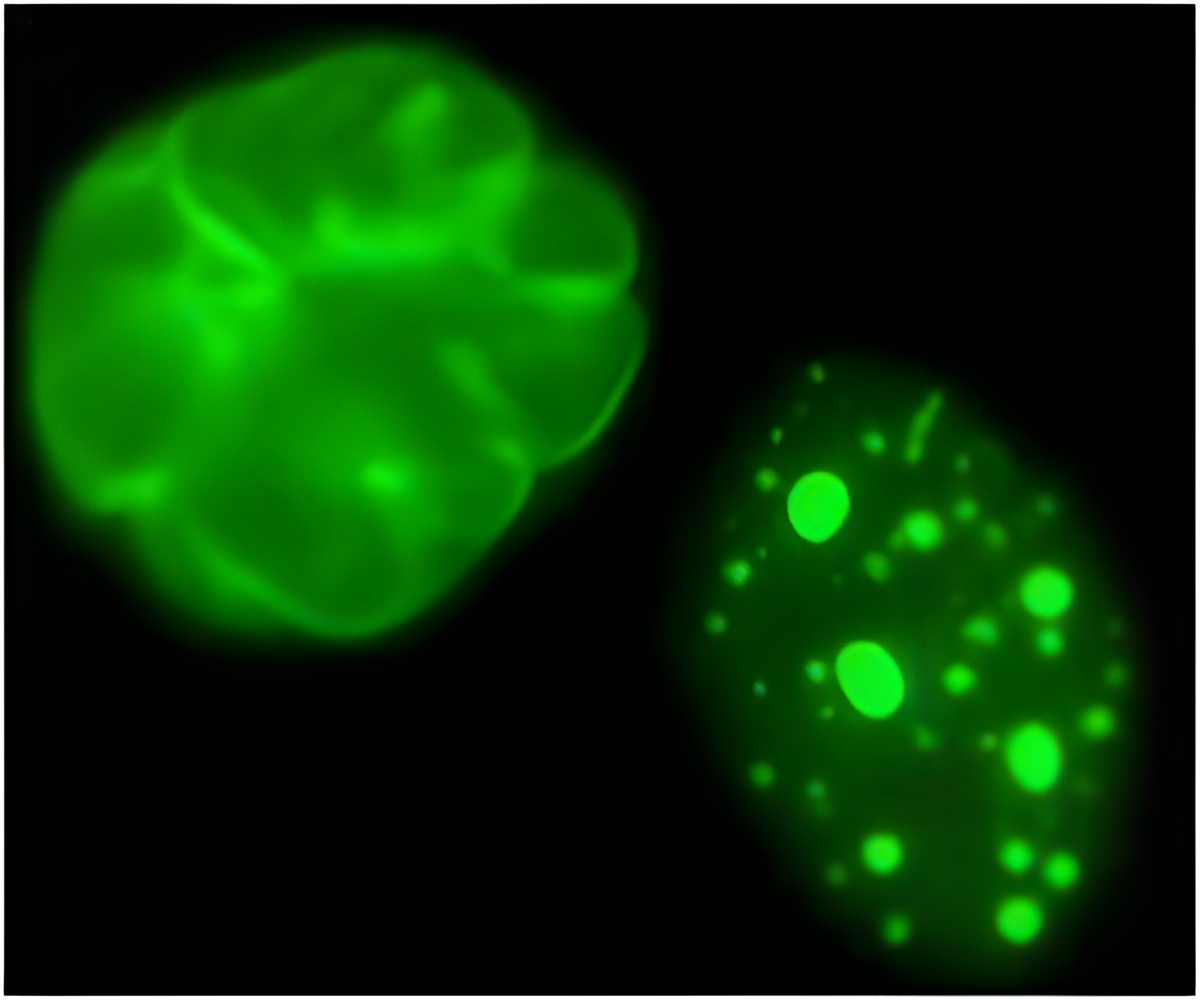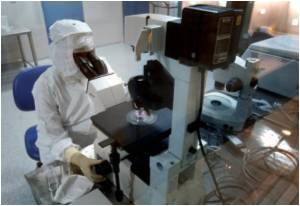A study suggests that stem cell manufacturing for drug screening and treatments for diseases such as Huntington's and Parkinson's could be boosted by a new method of generating stem cells.

The new materials, which are water-based gels, act as a tiny scaffold to which cells can cling as they grow. Normally cells must be grown on expensive biological surfaces that can carry pathogens and contaminate cells.
Once cells have multiplied sufficiently for their intended purpose, the gels can be cooled, enabling the stem cells to drop off the scaffold without becoming damaged.
The new approach surpasses existing techniques of separating cells by mechanical or chemical means, which carry a greater risk of damage to cells.
Scientists say the materials could offer a means of enabling the stem cells to be produced in large numbers efficiently and without the risk of inadvertent contamination, facilitating research, drug screening programmes and clinical applications that call for large numbers of cells.
Researchers at the University of Edinburgh developed the new materials by screening hundreds of potential compounds for their ability to support stem cell growth. From a shortlist of four, one has been found to be effective, and researchers say the remaining three show similar potential.
Advertisement
The study, published in Nature Communications, was supported by the European Union Framework 7 Grant Funding. The gels are being developed under licence by technology company Ilika.
Advertisement
Source-Eurekalert













